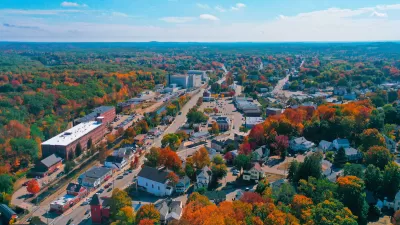The Economic Development and Housing Challenge Program can help address the scourge of homelessness among Indigenous people.

This story is authored by Brett King and republished from Minnesota Reformer.
Minnesota has a shortage of affordable housing, forcing people to live in encampments and cars and on borrowed couches.
According to the Wilder Foundation, Indigenous people make up 20 percent of the homeless population — but just 2 percent of the state’s population.
I am an enrolled band member with the Red Lake Band of Chippewa Indians, and I can relate to how my relatives may feel living within encampments.
I was raised by a single mother, and we struggled to find affordable housing. There were times when we lived in a three-bedroom house with 11 people because we couldn’t find affordable housing.
This was many years ago, and the cost of living — especially housing — has only gotten worse since then, rising every year.
Even as the city of Minneapolis claims that encampments have disappeared, the Star Tribune reported recently that “a number of homeless people and those who help them are skeptical that closing encampments is getting people housed. … They say it’s pushing homelessness farther to the margins.”
Given what minimum wage jobs pay and what an apartment costs, we know many people are barely getting by. I know from my own personal experience the stress of living paycheck-to-paycheck. You choose which bills to pay on time, and which bills are more important than others, and hopefully you can pay the electricity bill with the next paycheck before it gets shut off.
I remember having to live in a home with no electricity because my mother couldn’t afford to pay the bill — she had to choose to pay the rent or the electricity bill. Sometimes we had to light candles just to see in the house at night. This is just one example of the struggles of many low-income families.
“Minnesota nice” isn’t so nice when you can’t find affordable housing while trying to get by on minimum wage pay. Minnesota needs to provide more low-income housing, so these families and their children can enjoy the luxury of a room to sleep in at night.
Check out a bill at the Legislature (SF982), which is for the Economic Development and Housing Challenge Program, with a special emphasis on American Indian housing projects.
The Economic Development and Challenge Program is for affordable rental housing that supports economic development and redevelopment activities and job creation within a community by meeting locally identified housing needs. It serves rental households in areas with incomes at or below the greater of 80 percent of state or area median income.
In other words, exactly what we need.
This bill would help the Indigenous population find housing and help more families live with the luxuries that most of us take for granted: a home.
FULL STORY: ‘Minnesota nice’ isn’t so nice when you can’t find a place to live

Planetizen Federal Action Tracker
A weekly monitor of how Trump’s orders and actions are impacting planners and planning in America.

Congressman Proposes Bill to Rename DC Metro “Trump Train”
The Make Autorail Great Again Act would withhold federal funding to the system until the Washington Metropolitan Area Transit Authority (WMATA), rebrands as the Washington Metropolitan Authority for Greater Access (WMAGA).

The Simple Legislative Tool Transforming Vacant Downtowns
In California, Michigan and Georgia, an easy win is bringing dollars — and delight — back to city centers.

The States Losing Rural Delivery Rooms at an Alarming Pace
In some states, as few as 9% of rural hospitals still deliver babies. As a result, rising pre-term births, no adequate pre-term care and harrowing close calls are a growing reality.

The Small South Asian Republic Going all in on EVs
Thanks to one simple policy change less than five years ago, 65% of new cars in this Himalayan country are now electric.

DC Backpedals on Bike Lane Protection, Swaps Barriers for Paint
Citing aesthetic concerns, the city is removing the concrete barriers and flexposts that once separated Arizona Avenue cyclists from motor vehicles.
Urban Design for Planners 1: Software Tools
This six-course series explores essential urban design concepts using open source software and equips planners with the tools they need to participate fully in the urban design process.
Planning for Universal Design
Learn the tools for implementing Universal Design in planning regulations.
Smith Gee Studio
City of Charlotte
City of Camden Redevelopment Agency
City of Astoria
Transportation Research & Education Center (TREC) at Portland State University
US High Speed Rail Association
City of Camden Redevelopment Agency
Municipality of Princeton (NJ)





























